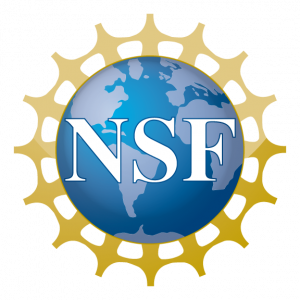Indigenous Pathways to FEWS in Higher Education & Beyond
Broadening participation of Native Americans in FEWS professions
Friday, November 13th, 2020
| Date & Time | Events |
| Friday, November 13th, 2020 | Pathways to Academic Careers in FEWS |
First session 9:00am – 10:30am PST | Introduction: Karletta Chief, University of Arizona Gregory Cajete, University of New Mexico
|
| Friday, November 13th, 2020 | Pathways to Professional Practitioners in FEWS |
Second session 11:00am – 12:30pm PST | Introduction: Alice Agogino, University of California, Berkeley Peter Littlehat, Indian Health Services |
Tribal College & University Partnerships in Co-InFEWS
Expanding educational and career opportunities for Indigenous students through
research in Food, Energy, and Water Systems
Friday, September 25th, 2020
| Date & Time | Events |
| Friday, September 25th, 2020 | Tribal College FEWS Capacity Building |
First session 9:00am – 10:30am PDT | Discussion with faculty and administrators from Tribal Colleges and Universities on mechanisms and practices to expand programming and student support in food-energy-water related disciplines. Welcome: N. Levi Esquerra, Senior Vice President for Native American Advancement, University of Arizona Christopher Caldwell, College of Menominee Nation |
| Friday, September 25th, 2020 | Pathways to FEWS Degrees |
Second session 11:00am – 12:30pm PDT | Discussion on best practices to support student advancement from High School to Associate and Bachelor degrees through to Graduate degrees and careers in food-energy-water related professions. Introduction: Alice Agogino, PI, University of California, Berkeley Mark Bauer, Diné College |
PAST WORKSHOP
Water Is Life: Shared Challenges, Shared Understanding, Shared Solutions
— Monday, June 15, 2020 —Tuesday, June 16, 2020 —
Wednesday, June 17, 2020 —Thursday, June 18, 2020 —Friday, June 19, 2020
| Date & Time | Events | ||
| Monday, June 15, 2020 | |||
First session 10:00am – 12:00pm PDT | Welcome and Orientation: InFEWS Background and Goals: | ||
| Monday, June 15, 2020 | |||
Second session 1:00pm – 2:30pm PDT | COVID-19 and FEWS Challenges on The Navajo Nation Panelists include: Suggested Video: | ||
| Tuesday, June 16, 2020 | |||
First session 10:00am – 12:00pm PDT | Indigenous FEWS: Past Practices and Innovations Indigenous co-innovation discussion of NRT FEWS programs, including a cross-pollination of best practices, challenges, and achievements across participants. Presentations from sponsoring programs:
| ||
| Tuesday, June 16, 2020 | |||
Second session 1:00pm – 2:30pm PDT | Diné Traditional FEWS Frameworks Keynote Speakers:
| ||
| Wednesday, June 17, 2020 | |||
First session 10:00am – 12:00pm PDT | FEWS Systems on The Navajo Nation Discussions of investigating and communicating nature and science in society. Panelists include: | ||
| Wednesday, June 17, 2020 | |||
Second session 1:00pm – 2:30pm PDT | Decolonizing FEWS Innovation – STEAM Panel Discussion Contextualizing innovation within Indigenous communities through both science and art. Inclusion of Art in STEM (STEAM). Topics surround what can be learned through using different methodologies. Panelists include: | ||
Student session 3:00pm PDT | Student Networking Opportunity for undergraduate and graduate student moderators, note takers and interns to meet and network. Additional time to prep for Thursday breakout sessions! | ||
| Thursday, June 18, 2020 | |||
First session 10:00am – 12:00pm PDT | What is Co-Design of FEWS Innovations in Indigenous Communities? Interdisciplinary and inter-institution collaboration discussion including discussion of best practices and recommendations for implementation. Discussion moderated by InFEWS trainees inviting conversation across previous days’ discussion topics. This session will facilitate teaching of co-innovation of FEWS with Indigenous and developing communities through the following breakout sessions:
| ||
| Thursday, June 18, 2020 | |||
Second session 1:00pm – 2:30pm PDT | FEWS Innovation and Learning with K-12 Indigenous Students Mark Sorenson, Director and CEO of Star (Service to All Relations) Charter School hosts a Virtual Field Trip | ||
| Friday, June 19, 2020 | |||
First (and only) session 10:00am – 12:00pm PDT | Opportunities, Networking and Next Steps Discussion of funding opportunities, proposal best practices and successful inter-institution collaborations. Presenters include:
Final Remarks and Closing Celebration |
 This material is based upon work supported by the National Science Foundation under Grant No. DGE-1633740. Any opinions, findings, and conclusions or recommendations expressed in this material are those of the author(s) and do not necessarily reflect the views of the National Science Foundation.
This material is based upon work supported by the National Science Foundation under Grant No. DGE-1633740. Any opinions, findings, and conclusions or recommendations expressed in this material are those of the author(s) and do not necessarily reflect the views of the National Science Foundation.
Menu



